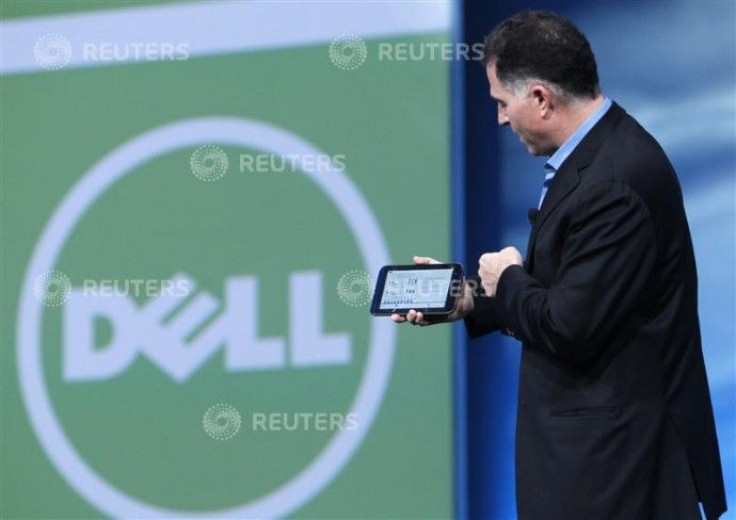Dell’s “take-under” of Compellent Technologies

Dell Inc. (NYSE: DELL) pursuit of storage equipment maker Compellent Technologies (NYSE: CML) has featured some unusual characteristics and twists.
After months of speculation, on Monday, Dec. 13, Dell announced that it entered into an agreement to purchase Compellent for $27.75 per share in cash. That price raised some eyebrows on Wall Street because Compellent shares closed the previous trading day (Friday, Dec. 10) at $28.71 per share (meaning the agreed-upon purchase price was about 3.3 percent below the previous trading day's closing price).
The day before, Thursday, Dec. 9, Dell finally confirmed market rumors by declaring that is was it advanced discussions to acquire -- although, at that time, at an even lower price of $27.50 per share (at an even greater discount to the previous day's closing price of $33.65).
Such transactions are relatively rare and are known as a “take-under” deal.
Another odd twist has occurred in this ongoing saga -- on Dec. 16, Compellent adopted shareholders rights plan — or “poison pill” — which will preclude anyone but Dell acquiring the company. It is highly unusual for a poison pill to be inserted after an acquisition agreement has concluded.
Not surprisingly, the proposed acquisition has come under scrutiny and prompted a slew of lawsuits and investigations.
For example, Tripp Levy PLLC, a New York-based national securities firm, said it has launched a probe into the Dell-Compellent merger, citing that the price being paid for Compellent might be grossly unfair, inadequate, and substantially below the fair or inherent value of Compellent.
In fact, Tripp Levy indicates that analysts have valued Compellent as high as $40 per share (at least). Tripp Levy also wonders if Conpellent's poison pill suggests that the company's board may have breached their fiduciary duties by not acting in Compellent shareholders' best interests in connection with the sale process of Compellent.
However, it must be remembered that takeover rumors have surrounded Compellent for months -- in fact, the company shares have almost tripled since early August. Speculation about consolidation reached a frenzy after Dell lost out to Hewlett-Packard (NYSE: HPQ) in its bid for 3Par Inc. (NYSE: PAR). Hewlett-Packard had acquired 3Par in September for about $2.4-billion (much greater than Dell's subsequent $960-million acquisition pact for Compellent).
Moreover, take-unders typically happen after the target company's stock price has undergone a significant run-up in anticipation of a takeover bid -- which is exactly what happened with Compellent shares.
Indeed, the stock hit a closing peak of $33.65 on Dec 8 (just before Dell formally revealed its deal for Compellent). Apparently, traders had bid up the price of Compellent a bit too high.
Apparently, behind the scenes, Dell and Compellent had agreed to a purchase price before their negotiations were publicized and (more importantly) Compellent enjoyed a nice run-up.
Anthony Alfonso, president with BDO Valuation Advisors, suspected that rumors of a takeover of Compellent led the market to over-speculate -- leading to a buying frenzy before Dell announced its merger agreement.
Alfonso noted that in any merger story, there exists a control premium -- the price that a buyer is usually willing to pay over the current market price of a publicly traded company.
I think that Compellent's stock, during its price run-up prior to the merger pact with Dell, escalated to a level above that control premium price, he said. Although a take-under is unusual, I think this was more of a timing issue.
Dell expects to complete the acquisition sometime next year -- but there is likely to be more twists and turns to this ongoing story.
© Copyright IBTimes 2024. All rights reserved.











